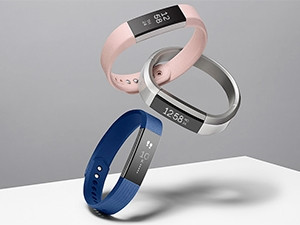
As the wearable technology market evolves beyond wrist-worn devices to include shirts, tattoos, hats, shoes and more, consumers are much happier with their wearable devices than the apps they use to interpret the data they collect.
This is according to a study by Argus Insights, based on an analysis of over 136 000 consumer reviews of wearables devices and applications from November 2015 to February 2016.
While the research did not include the African market, it encompassed reviews collected from US, European, Australian and Indian retailers, and reviews from the iOS App Store, Google Play and Amazon App Store.
For example, says Argus, Jawbone Up is leading delight as a great 'all in one app' but at the same time users express discontent with the Jawbone bands.
According to the study, Nike and Jawbone apps are earning praise and relatively higher delight scores while Fitbit, Samsung and other apps are consistently seeing low consumer satisfaction.
John Feland, CEO of Argus Insights, explains that consumers like Jawbone and Nike's apps because they help users make sense of their data. He adds that users praise Jawbone's Smart Coach feature for offering actionable tips based on collected data.
"Jawbone is making strides in enabling actionably with the Smart Coach, a hurdle many other apps do not yet offer. A major source of delight for the Nike+ Running app is the motivation the app provides during runs with real-time reports of mile marks and pace."
However, Feland points out users are frustrated with Samsung's S Health app due to persistent issues with reliability and usability.
"Consumers report frequent crashes, miscounted steps, and lack of compatibility with other apps. Some users even complain the app must remain on their device since they cannot delete what they deem as a 'useless' app from Samsung devices."
As the market is diversifying to offer activity-specific devices, like special shorts or socks for running, data collection and integration is becoming more important, says Feland.
"A market that began with single wristbands is quickly expanding to create a web of interconnected devices, collecting a slew of data that must be made actionable through easy to use software."
The sheer volume of personal data collected from wearable devices is impressive, but the true value comes from interpreting it all, Argus Insights says.
The use cases for wearable data are extensive and diverse, ranging from athletes tracking performance and doctors tracking patient recovery, to everyday people tracking steps, sleep, heart rate and calories. It is the applications that are the pathway to interpretation, allowing data to be understood and useful, Feland says.
"According to our consumer review data, consumers currently discuss using their wearable devices most often to track their fitness and sleep. However, as technology is improving and sensors are shrinking, opportunities to use wearables in different sectors, particularly healthcare, become extremely interesting," he concludes.
Share